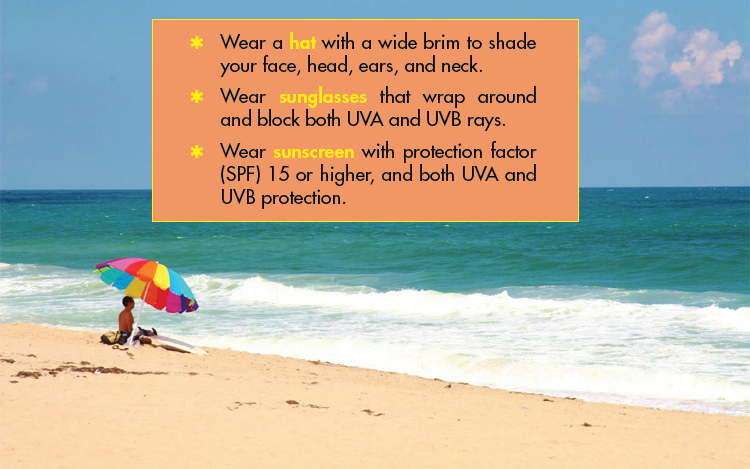AS SCHOOL comes to a close and the thermometer begins to climb, it is a good time to remember the importance of protecting our skin from the harsh rays of the sun. Florida offers so many opportunities to get out and enjoy the outdoors, but we need to remain aware of the dangers that come from being sun-kissed. That’s why the Florida Department of Health, in partnership with the U.S. Department of Environmental Protection, is launching a new sun-safety project called “Sun’s Up, Cover Up.”
Sun safety prevents skin cancer for Florida’s residents and visitors who enjoy being outside in the Sunshine State. This partnership is a natural fit for our agencies and helps to share actionable health information with park visitors.
What actually is skin cancer and how is it caused? Skin cancer is defined as cancer that forms in the tissues of the skin, and melanoma — the deadliest kind of skin cancer — is caused by too much exposure to sunlight (ultraviolet radiation). It is estimated that one in five people will develop skin cancer in their lifetime. Although melanomas account for only a small percentage of skin cancer, they are more likely than other types of skin cancer to spread to other parts of the body and account for more than 9,700 of the nearly 13,000 skin cancer deaths each year, according to the American Cancer Society. In Florida, it is estimated there will be approximately 5,480 new melanoma cases diagnosed and 820 deaths due to melanoma in 2015.
Here are some helpful tips to avoid the consequences of overexposure to the sun — like sunburns, wrinkling skin, and skin cancer:
- Wear a hat with a wide brim to shade your face, head, ears, and neck.
- Wear sunglasses that wrap around and block both UVA and UVB rays.
- Wear sunscreen with protection factor (SPF) 15 or higher, and both UVA and UVB protection.
By following these simple suggestions, our residents and visitors can enjoy a safe and healthy time outside. Remember, be safe, be smart, and enjoy Florida’s summer sun. To learn more about the project and tips for staying safe in the sun, visit www.floridahealth.gov/sunsup.
CREDIT
article by DR. ULYEE CHOE
ABOUT THE AUTHOR: Dr. Ulyee Choe, an infectious disease physician, serves the community as director of the Florida Department of Health in Polk County (FDOH-Polk) and as a Polk County Medical Association member. For more information about FDOH-Polk, visit www.mypolkhealth.net.
